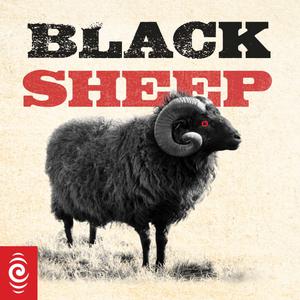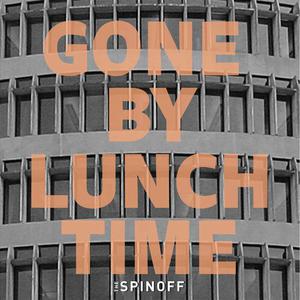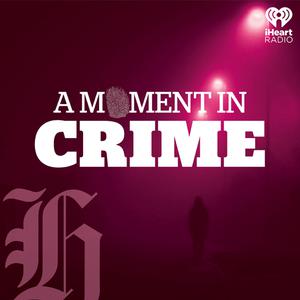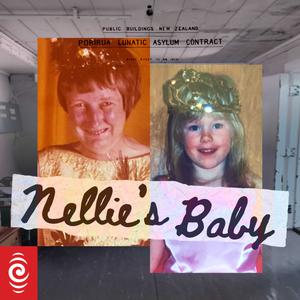
Black Sheep
RNZ
2023 NZ PODCAST AWARDS - PODCAST OF THE YEAR (GOLD) The shady, controversial and sometimes downright villainous characters of New Zealand history, presented by William Ray.
- 55 minutes 10 secondsSpy Scandal: the story of Bill Sutch
On 27 September 1974 New Zealanders woke to the news Dr Bill Sutch, a famous economist, historian, and former senior government official had been arrested and accused of spying for Soviet Russia. He was later found not guilty, but over the last 50 years, suspicion has swirled, and new evidence has been revealed. Check our RNZ's award Winning Podcast The Service for more about the history of the SIS in New Zealand.
Check our RNZ's award Winning Podcast The Service for more about the history of the SIS in New Zealand
Further reading:
- Spy by Kit Bennets
- Shirley Smith: An Examined Life by Sarah Gaitanos
- Trying to Understand Dr Bill Sutch by Brian Easton
- Bill Sutch - Dictionary of NZ Biography by Brian Easton
26 September 2024, 5:00 pm - Spy by Kit Bennets
- 43 minutes 27 secondsBird Bandit: the story of Freddie Angell
Freddie Angell was New Zealand's most notorious wildlife smuggler. His repeated attempts at stealing and exporting native wildlife in the 1990s, including Kea and Tuatara, made him all but a household name. Black Sheep speaks to documentary-maker Andy MacDonald about his extraordinary story.
12 September 2024, 5:00 pm - 51 minutes 2 secondsMusket Missionary: the story of Thomas Kendall (Part 2)
Early NZ missionary Thomas Kendall arrived in London in 1820 with the Ngāpuhi Rangatira Hongi Hika. He would return to Aotearoa a year later with the first ever written dictionary of Te Reo Māori, a newly won clerical collar ...and more than 300 muskets.
5 September 2024, 5:00 pm - 43 minutes 52 secondsMusket Missionary: the story of Thomas Kendall (Part 1)
Early Missionary Thomas Kendall facilitated the sale of hundreds of muskets to Ngāpuhi Māori, helping to enable the bloodiest wars in New Zealand history. But there's more to Kendall's story. He was instrumental in the transformation of Te Reo Māori into a written language, and became so fascinated by Māori spirituality that he (in his own words) "almost completely turned from a Christian to a Heathen".
Thomas Kendall was among the very first missionaries to arrive in Aotearoa. In 1814 the devoted Calvinist and former schoolteacher threw caution to the wind, taking himself, his wife and five children to live alongside Māori at Rangihoua in the Bay of Islands.
Kendall had dreams of founding a school, teaching Māori to read and write - and eventually converting them to the Christian faith.
It all went wrong almost immediately. The school failed, Kendall fought bitterly with his fellow missionaries, his wife gave birth to another man's child, and he swiftly discovered the only way for the mission to survive in the Bay of Islands was by trading muskets to Māori - particularly the famous Ngāpuhi Rangatira Hongi Hika.
Over the next decade, Thomas Kendall facilitated the sale of hundreds of muskets to Māori, helping to enable the bloodiest wars in New Zealand history: The Musket Wars.
However, Kendall's most important legacy was formed during a trip to England in 1820 alongside Hongi Hika and another Ngāpuhi chief, Waikato. Together with an academic at Cambridge University, Kendall, Hongi and Waikato would create the first dictionary and grammar of Te Reo Māori.
In the first of a two part series of Black Sheep, William Ray speaks to religious historian Peter Lineham Professor Emeritus at Massey University and Ngāti Rarawa kaumatua Haami Piripi about the complex, fraught story of Thomas Kendall.
Further reading:
- The Legacy of Guilt: a life of Thomas Kendall by Judith Binney
- Thomas Kendall - Dictionary of New Zealand Biography
- Hongi Hika - Dictionary of New Zealand Biography
29 August 2024, 5:00 pm - 44 minutes 25 secondsBeastly Truth: the story of George Howe
In the 1900s a series of lurid headlines were published in the New Zealand Truth about George Howe, a "Beastly Brothel-keeper" who pimped out underage girls from his shop on Wellington's Adelaide Road. But what Truth found most "beastly" about Howe, is that he was Chinese. Black Sheep looks at the case of George Howe, and the "editorial hate-crimes" of what was once NZ's most influential newspaper.
Contains discussion of underage prostitution and quotes racist slurs which featured in the NZ Truth Newspaper i.e. "slimy slit-eyes" and "concupiscent chows"
22 August 2024, 5:00 pm - 46 minutes 1 secondHighwayman: the story of Robert Wallath
In 1892 a masked figure in a bizarre uniform began a 15 month crime spree, robbing people at gunpoint in and around New Plymouth. When he was finally arrested and unmasked, residents were dumbfounded to discovered the perpetrator was mild-mannered Robert Wallath - the teenage son of a local farmer and carpenter.
Wallath, it turned out, had a deep fascination for highway criminals and at trial his lawyers claimed his mind had been "polluted" by trashy novels about Dick Turpin and Ned Kelly.
But later in life, Wallath claimed his crimes had divine inspiration. So what really drove this Taranaki teenager to commit such a brazen string of robberies and thefts?
15 August 2024, 5:00 pm - 28 minutes 23 secondsAnzac Massacre: the story of Surafend (Part 3)
"As morning dawned we stood and watched / That devastated scene / Where but a single yesterday / Had flourished Surafeen." In the final episode of a three-part series, RNZ's Black Sheep investigates the Surafend massacre of December 1918.
Read more about the story of Surafend on the RNZ website here.
T’was a never to be forgotten night
The village was soon in flames
The wallads knocked when sighted
But protected were the dames.
Although we are fighting Anzacs
Our honour we uphold
And treat the women fairly
As did our ancestors of old.
As morning dawned we stood and watched
That devastated scene
Where but a single yesterday
Had flourished Surafeen
We turned away in silence
But feeling justified
That for our murdered comrade
We would gladly have died.
- RSA Review, August 1938These lines are extracted from a longer poem published in RSA Review, the official magazine for New Zealand War veterans. They were credited to an unnamed New Zealand soldier who participated in the 1918 Surafend massacre.
In the final episode of our three part series RNZ's Black Sheep we look at the unanswered questions surrounding these killings, and especially the question of what motivated them.
Host William Ray speaks to military historian Terry Kinloch, author of Devils on Horses, Paul Daley, author of Beersheba and New Zealand Defence Force Historian John CrawfordFurther sources:
8 August 2024, 5:00 pm - 25 minutes 28 secondsAnzac Massacre: the story of Surafend (Part 2)
"They went out to this village, and they went through it with the bayonet.” In the second of a three-part series, RNZ's Black Sheep investigates the Surafend massacre of December 1918.
Read more about the story of Surafend on the RNZ website here.
“They got their heads together, the New Zealand and Australians, and they went out to this village and they went through it with the bayonet.”
- Edward O'Brien, Veteran of the Anzac Mounted Division, 1988These are the words of Edward O’Brien - a former member of the Anzac Mounted Division. His words were recorded on tape by an oral historian and now sit in the archives of the Australian War Memorial.
Edward was one of a handful of Anzac's to admit seeing the Surafend massacre first hand, but his testimony does little to explain what happened.
In the second of a three part series, RNZ's Black Sheep podcast unpicks the story of the massacre, and the events which followed it - including the Anzac's little known role in suppressing the 1919 Egyptian revolution.
William Ray speaks to military historian Terry Kinloch, author of Devils on Horses, Paul Daley, author of Beersheba and New Zealand Defence Force Historian John CrawfordFurther sources:
1 August 2024, 5:00 pm - 31 minutes 15 secondsAnzac Massacre: the story of Surafend (Part 1)
“There was a time when I was proud of you men of the Anzac Mounted Division. I am proud of you no longer.” In the first of a three-part series, RNZ's Black Sheep investigates the Surafend massacre.
Read more about the story of Surafend on the RNZ website here.
“There was a time when I was proud of you men of the Anzac Mounted Division. I am proud of you no longer. Today, I think you are nothing but a lot of cowards and murderers.”
- General Edmund Allenby, reported speech to Anzac Mounted Division, 16 December 1918These words are attributed to General Edmund Allenby, the British Commander of the Egyptian Expeditionary Force. He was speaking to the Anzac Mounted Division in the aftermath of the Surafend massacre, where an estimated 200 members of the Division killed upwards of 40 male Arab civilians in a small village in southern Palestine in December 1918.
More than a hundred years later, much of the story of the massacre remains a mystery. Basic facts around the numbers killed, the identity of the killers, and their exact motivation are unknown.
In the first of a three part series, William Ray speaks with military historian Terry Kinloch, author of Devils on Horses, to unpick the story of the Anzac mounted Division's campaign through Sinai and Palestine, and how it might help explain the massacre.
Further sources:25 July 2024, 5:00 pm - 2 minutes 3 secondsTrailer: Black Sheep Season 8
Black Sheep Season 8 is just around the corner with a whole new cast of controversial, villainous, or simply misunderstood figures from New Zealand history.
11 July 2024, 5:00 pm - 41 minutes 9 secondsNellie's Baby: the story of New Zealand's Mental Institutions
The last of the so-called 'lunatic asylums' closed only 20 years ago. They were founded on ideas of paternalism and social progress and survived on the basis they offered safety. In this special crossover with the Nellie's Baby Podcast, William Ray and Kirsty Johnston look into their origins.
31 March 2024, 4:00 pm - More Episodes? Get the App
Your feedback is valuable to us. Should you encounter any bugs, glitches, lack of functionality or other problems, please email us on [email protected] or join Moon.FM Telegram Group where you can talk directly to the dev team who are happy to answer any queries.
 Gone By Lunchtime
Gone By Lunchtime
 The Detail
The Detail
 A Moment In Crime
A Moment In Crime
 The Long Read from Stuff
The Long Read from Stuff
 Nellie's Baby
Nellie's Baby